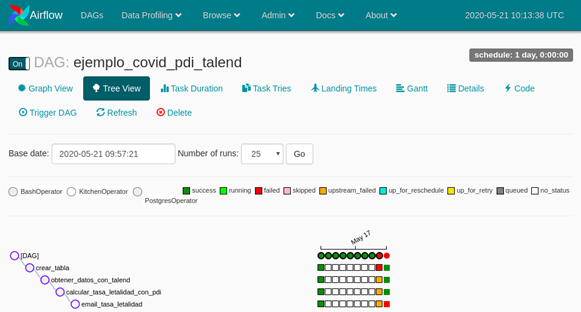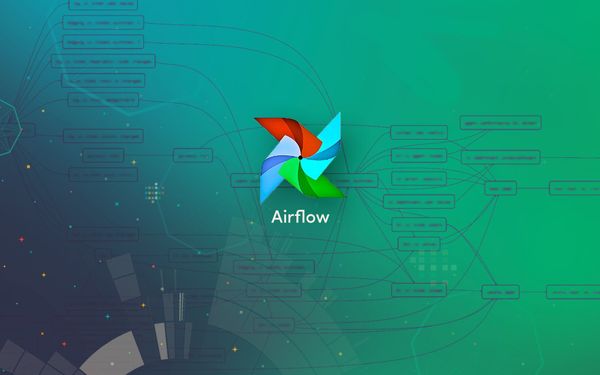

To do so, go to and log in with 'admin' for both your Username and Password. Access the Airflow UI for your local Airflow project.If you already have either of those ports allocated, you can either stop your existing Docker containers or change the port. Note: Running 'astro dev start' will start your project with the Airflow Webserver exposed at port 8080 and Postgres exposed at port 5432. Verify that all 3 Docker containers were created by running 'docker ps'.Scheduler: The Airflow component responsible for monitoring and triggering tasks.Webserver: The Airflow component responsible for rendering the Airflow UI.This command will spin up 3 Docker containers on your machine, each for a different Airflow component:

Start Airflow on your local machine by running 'astro dev start'.airflow_settings.yaml: Use this local-only file to specify Airflow Connections, Variables, and Pools instead of entering them in the Airflow UI as you develop DAGs in this project.plugins: Add custom or community plugins for your project to this file.
APACHE AIRFLOW CERTIFICATION INSTALL
requirements.txt: Install Python packages needed for your project by adding them to this file.packages.txt: Install OS-level packages needed for your project by adding them to this file.include: This folder contains any additional files that you want to include as part of your project.If you want to execute other commands or overrides at runtime, specify them here. Dockerfile: This file contains a versioned Astro Runtime Docker image that provides a differentiated Airflow experience.It also includes an empty 'my_custom_function' that you can fill out to execute Python code. By default, this directory includes an example DAG that runs every 30 minutes and simply prints the current date. dags: This folder contains the Python files for your Airflow DAGs.Your Astro project contains the following files and folders:

APACHE AIRFLOW CERTIFICATION HOW TO
This readme describes the contents of the project, as well as how to run Apache Airflow on your local machine. This course pre-requisites that you have prior skills to work with datasets, SQL, relational databases, and Bash shell scripts.Welcome to Astronomer! This project was generated after you ran 'astro dev init' using the Astronomer CLI. You’ll gain hands-on experience with practice labs throughout the course and work on a real-world inspired project to build data pipelines using several technologies that can be added to your portfolio and demonstrate your ability to perform as a Data Engineer. Upon completing this course you’ll gain a solid understanding of Extract, Transform, Load (ETL), and Extract, Load, and Transform (ELT) processes practice extracting data, transforming data, and loading transformed data into a staging area create an ETL data pipeline using Bash shell-scripting, build a batch ETL workflow using Apache Airflow and build a streaming data pipeline using Apache Kafka. This course is designed to provide you the critical knowledge and skills needed by Data Engineers and Data Warehousing specialists to create and manage ETL, ELT, and data pipeline processes. Defining your data workflows, pipelines and processes early in the platform design ensures the right raw data is collected, transformed and loaded into desired storage layers and available for processing and analysis as and when required. Well-designed and automated data pipelines and ETL processes are the foundation of a successful Business Intelligence platform.


 0 kommentar(er)
0 kommentar(er)
